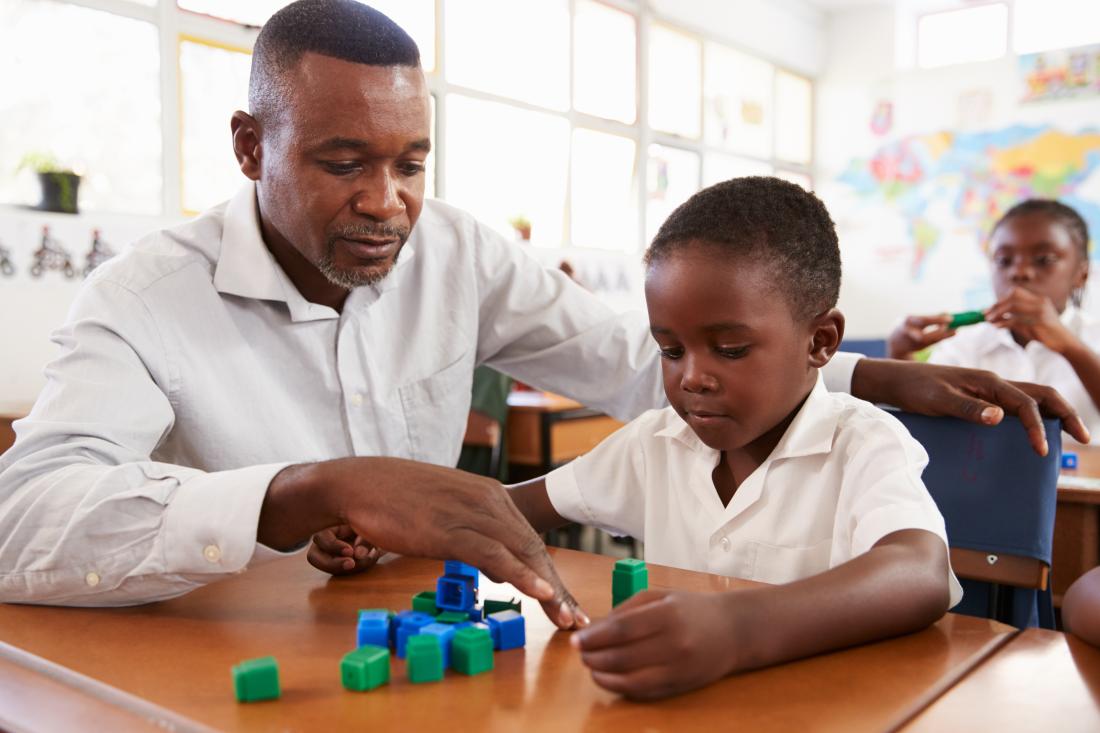Evaluating the Impact of Play-Based Learning on Early Childhood Development in South Africa
- Children under five
- Teachers
- Early childhood development
Over the past 15 years, the provision of preschool in South Africa has expanded massively, but in many cases, these programs do not adequately prepare students for primary school. In KwaZulu-Natal, researchers are measuring the impact of the Six Bricks program, which promotes structured play using manipulative bricks combined with a set of carefully designed pedagogical activities, on preschoolers' executive function skills.
Policy issue
Executive function skills—which are related to memory, reasoning, and problem solving—are important for school readiness, early school achievement, and lifelong learning. However, growing up in poverty can hinder the development of executive function: children from low-income backgrounds often have lower levels of cognitive skills and social-emotional maturity. These early gaps jeopardize children’s capacity to learn in primary school, leading to weak academic performance throughout their schooling with consequences for their well-being in adulthood. There is ongoing debate on whether focusing on active and participatory learning might improve early childhood development (ECD) curriculums. Thus, there is a need for more evidence on what types of ECD programs support the development of executive function, especially for low-income children.
Context of the evaluation
Over the past 15 years, the provision of preschool for children ages 5-6 (called “Grade R”) has expanded massively in South Africa. While the government has not yet reached its target of universal provision, the vast majority (86 percent) of 5-year-olds were enrolled in some form of ECD education in 2014. However, these Grade R programs are typically taught by under-qualified teachers who often have a limited understanding of young children’s development and do not know how to facilitate learning through structured play.
Care for Education, a non-profit organization, has developed an ECD program in collaboration with the LEGO Foundation. The program is called Six Bricks and involves a range of hands-on, playful games and activities designed to promote concentration, memory, problem solving, and other aspects of executive function. The LEGO Foundation is now exploring whether delivering the program though a low-cost and scalable teacher training model is effective in improving children’s executive function. This program is being implemented among Grade R students in under-privileged areas of KwaZulu-Natal.

Details of the intervention
Researchers are using a randomized evaluation to measure the impact of the Six Bricks program on the executive function for Grade R learners. The 124 ECD centers and public schools in the study were randomly assigned to two treatment groups or a comparison group:
- Training by Care for Education: 31 schools receive the Six Bricks program with training from Care for Education (CFE)
- Training by TREE: 33 schools receive the Six Bricks program with training from Training and Resources in Early Education (TREE), an accredited ECD resource and training organization based in Durban. TREE trainers in turn receive training from CFE
- Comparison: 60 schools do not receive the program until after the evaluation is completed
Teacher trainings in both treatment groups are identical except for the organization that conducts the trainings. Teachers receive an initial day of training and an onsite support visit followed by a second day of training two months later and an additional onsite support visit.
To measure executive function of students, researchers randomly selected seven students to assess within each school, creating a total sample of 868 Grade R students. The evaluation takes place during the 2015-2016 school year, with teachers in both training groups beginning training in early 2015.
Results and policy lessons
Project ongoing; results forthcoming.


